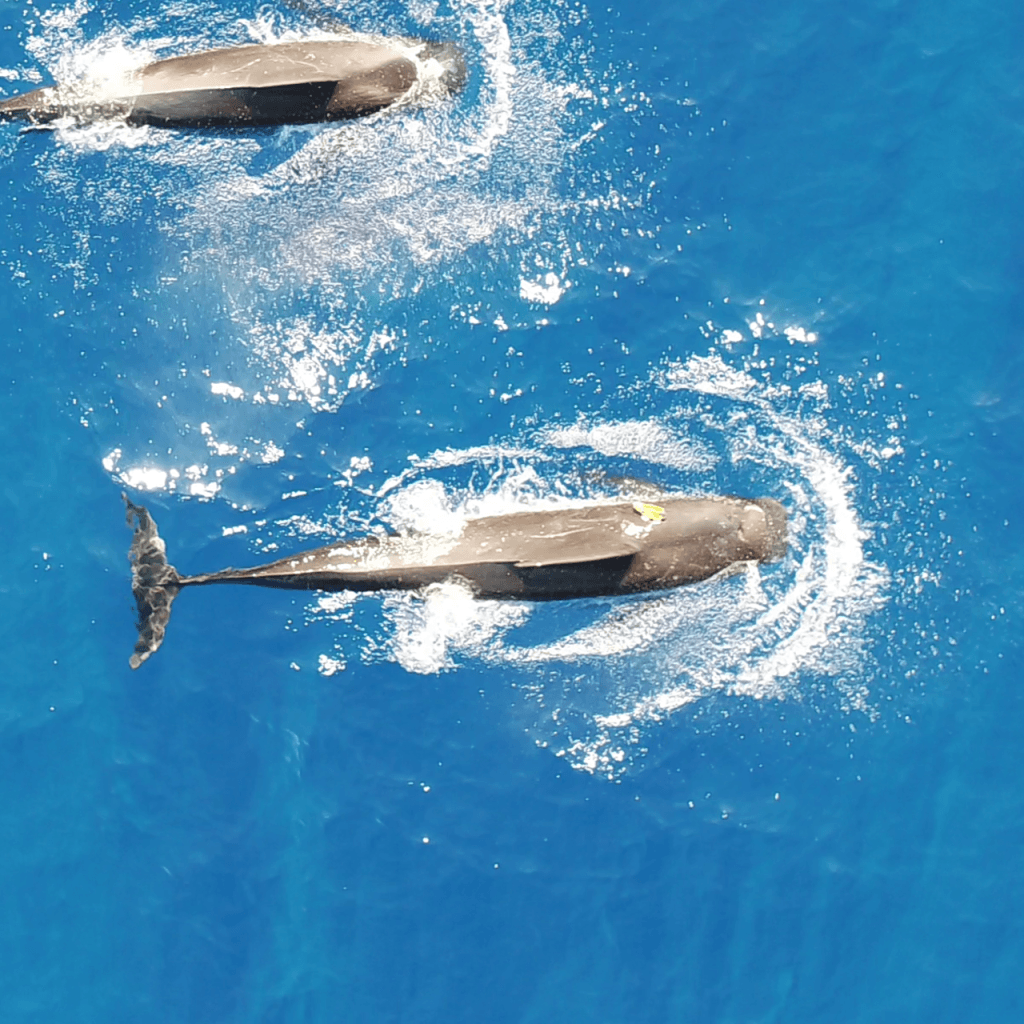Study Quantifies Pilot Whale Diet, Reveals Large Squid Demand
A University of Hawaiʻi led study published November 17 found that adult short finned pilot whales must eat about 142 squid per day, and that the entire population consumes an estimated 416 million squid each year. The findings give Kauai residents new benchmarks to evaluate threats to local marine food webs and to shape conservation and fisheries policy.

Researchers from the University of Hawaiʻi released a study on November 17 that, for the first time, quantified the energetic needs of Hawaiʻi's short finned pilot whales. Using biologging tags and complementary methods, the team measured dive depths, movement patterns, acoustic behavior, and feeding to construct an energy budget for this genetically distinct, nonmigratory population. The analysis concluded that an average adult pilot whale must consume about 142 squid per day, and that the population as a whole likely requires about 416 million squid annually. Recorded dive depths reached roughly 2,600 feet or about 1,000 meters, underscoring how these animals rely on deep water prey resources.
The study provides hard data where managers and scientists previously relied on rough estimates. Biologging tags furnished continuous streams of information on where whales go, how long they stay at depth, and when they feed, allowing conversion of observed behavior into caloric demands. Those caloric demands were then translated into prey counts using energetic values for squid. The result is a concrete benchmark for assessing how changes in prey availability or ocean conditions could ripple through the local ecosystem.
For Kauai the implications are practical and immediate. The pilot whale population's large annual squid requirement links cetacean health to squid abundance, which is sensitive to ocean temperature, oxygen levels, and the availability of forage species. Disruption to squid stocks from warmer waters or changes in prey distribution could force whales to alter foraging patterns, increase time spent diving, or shift ranges. That in turn could affect whale watching, a component of Kauai's tourism economy, and could create new interactions with local fisheries that rely on overlapping species or gear.
The study also sharpens focus on human generated threats that can be assessed with the new benchmarks. Noise from shipping, coastal construction, and certain fisheries activities can interfere with the whales' acoustic foraging. Changes in ocean conditions associated with climate change can reduce squid productivity. Prey disruption from fishing or ecosystem shifts can erode the energy budget the study mapped out. The paper frames these stressors in terms of energetic shortfalls, which makes potential population impacts more tangible for policymakers.
From a management perspective the findings support several approaches. Fisheries managers could use the squid consumption estimate when evaluating catch limits or spatial protections for key foraging grounds. Marine spatial planning could incorporate deep water habitats identified by the dive data. Noise mitigation measures, such as routing or seasonal restrictions for noisy activities, could be justified using the energetic benchmarks as a measure of risk. For Kauai residents and leaders, the study provides a data informed basis to weigh economic interests like fishing and tourism against long term marine mammal conservation.
Long term trends remain a central concern. As ocean warming and deoxygenation progress, squid distributions and abundance are likely to change, potentially increasing energetic stress on predators that rely on deep water prey. The University of Hawaiʻi led study gives local managers and the public a clearer metric to track those changes over time, and a starting point for policy interventions aimed at sustaining both the whales and the coastal economies that depend on a healthy ocean.


